Einaudi Center for International Studies
Laidlaw Scholars Q+A Webinar with Pachaysana
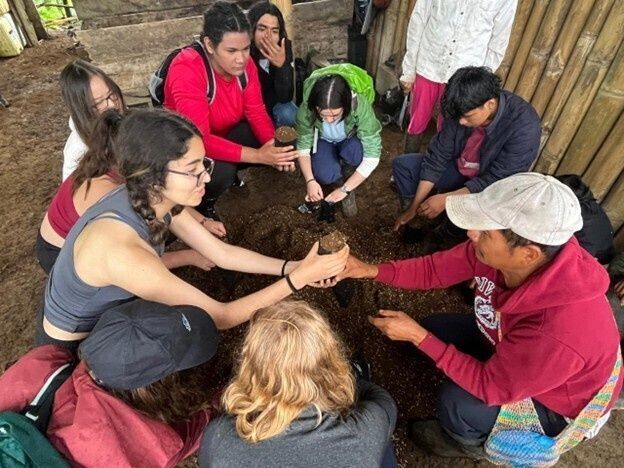
November 6, 2025
5:00 pm
For the summer 2026 Leadership in Action experience, students will be placed with the Pachaysana Foundation exploring what it means to be an intercultural leader in today’s complex, fractured world. Please attend this Q+A webinar with Pachaysana Foundation to learn more about their work and how the Laidlaw Scholars explore leadership as something we live—grown in relationship and rooted in the wisdom of agrarian, Indigenous, and activist communities.
Attendance and participation in the Q+A are highly recommended for Laidlaw Scholars applicants. Applications are due January 12, 2026.
Register here. Can’t attend? Another Q+A webinar is scheduled for November 5.
Contact programs@einaudi.cornell.edu with questions.
***
The Mario Einaudi Center for International Studies hosts info sessions for graduate and for undergraduate students to learn more about funding opportunities, international travel, research, and internships. View the full calendar of fall semester sessions.
Additional Information
Program
Einaudi Center for International Studies
Reppy Institute for Peace and Conflict Studies
East Asia Program
Southeast Asia Program
Latin American and Caribbean Studies
Institute for African Development
Institute for European Studies
South Asia Program
Migrations Program
Speaking of Language Podcast: SWANA and Women of MENA

Seema Golestaneh, SWANA
Seema Golestaneh and Alia Amer discuss Women of MENA, a Cornell student organization that is a digital publication at the intersection of culture and gender studies.
Additional Information
ICE Detainees in New York Jails Can’t Talk to Their Lawyers

Jaclyn Kelley-Widmer, Migrations
Attorneys and advocates, including Jaclyn Kelley-Widmer, clinical professor of law, say that poor conditions, isolation, and lack of legal access in county jails have led many detained immigrants to forgo their cases and accept deportation, even when they have strong grounds to stay in the U.S.
Additional Information
US Farmers Need More Than a Bailout to Survive Tariffs
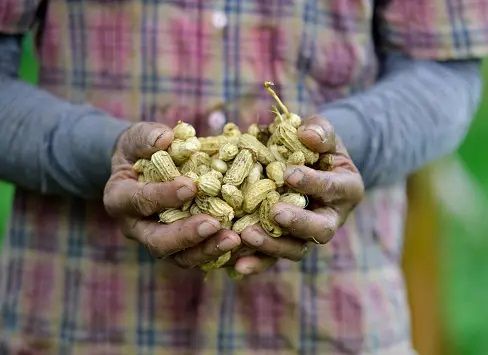
Chris Barrett, IAD/SEAP
Chris Barrett, a Cornell University professor of economics and public policy, critiques the limited efficacy of government bailouts for American farmers struggling under shifting global trade patterns.
Additional Information
Trump's Farmer Bailout Raises Fears About Trade War Winners and Losers
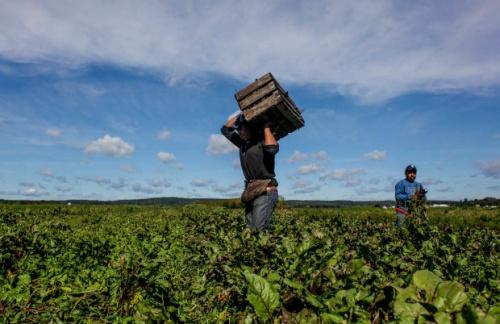
Chris Barrett, IAD/SEAP
Chris Barrett, an economics professor at Cornell University, questions the wisdom and fairness of bailing out predominantly wealthy farmers, particularly those who supported the policies leading to trade disruptions.
Additional Information
Stoikov Lecture on Asian Art: Thasnai Sethaseree
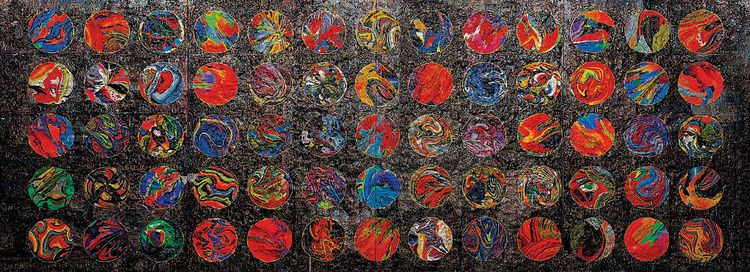
October 30, 2025
5:15 pm
Johnson Museum of Art, Robinson Lecture Hall
Thasnai Sethaseree will discuss his work in conversation with Dr. Tamara Loos in conjunction with the exhibition Cold War: The Mysterious.
An artist and professor of media arts and design at Chiang Mai University, Sethaseree holds a master’s degree in visual arts from the University of Chicago and a PhD in social sciences from Chiang Mai University. In the series Cold War: The Mysterious (2019–22), Sethaseree focuses on specific authoritarian actors, freedom-fighters, political uprisings, and violent crackdowns, but also those that draw more generally from the press and popular culture to convey the complications and chaos of this period.
All are encouraged to visit the exhibition (in the Gold Gallery, also on Floor 2L) prior to the program. The exhibition will also be open after the talk during a public reception, free and open to all.
The annual Stoikov Lecture on Asian Art at the Johnson Museum is funded by a generous gift from Judith Stoikov, Class of 1963, and is cosponsored this year by the Southeast Asia Program.
Additional Information
Program
Einaudi Center for International Studies
Southeast Asia Program
Karen Jaime, "Digital Poetics: HIDVL and Queer Nuyorican Performance"

October 24, 2025
12:00 pm
Olin Library, 703
Please join us for an event in our Digital Humanities Initiative Colloquium Series: a presentation by and conversation with Karen Jaime, Associate Professor of Performing and Media Arts and Latina/o Studies at Cornell. Professor Jaime's talk will focus on the Hemispheric Institute Digital Video Library (HIDVL), the first major digital video library of performance practices in the Americas, and queer Nuyorican performance and poetry.
Lunch will be served! All are welcome.
Additional Information
Program
Einaudi Center for International Studies
Latin American and Caribbean Studies
Faculty: Apply for Global Hubs Seed Grants
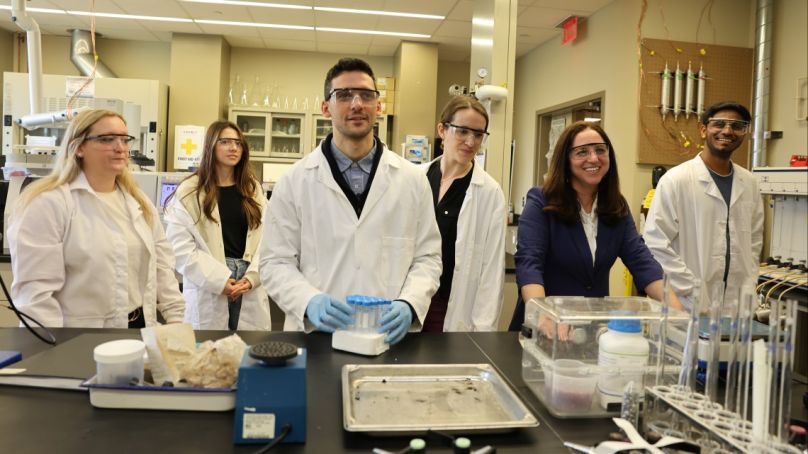
Proposals due Oct. 15
Up to 20 early-stage Hubs collaborations will receive funding from this year’s Global Hubs Research Seed Grants.
Additional Information
Laidlaw Scholars Q+A Webinar with Pachaysana
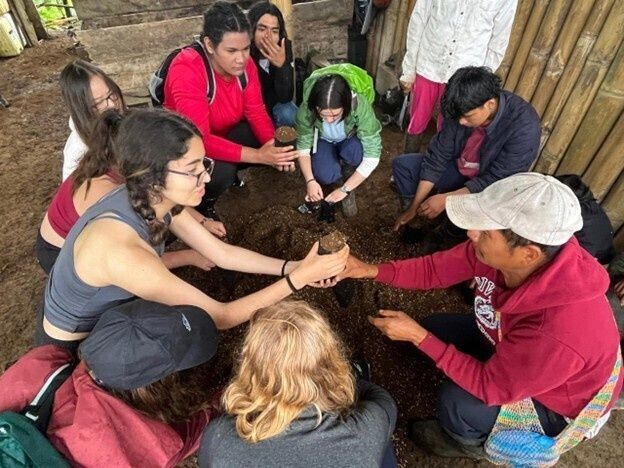
November 5, 2025
12:00 pm
For the summer 2026 Leadership in Action experience, students will be placed with the Pachaysana Foundation exploring what it means to be an intercultural leader in today’s complex, fractured world. Please attend this Q+A webinar with Pachaysana Foundation to learn more about their work and how the Laidlaw Scholars explore leadership as something we live—grown in relationship and rooted in the wisdom of agrarian, Indigenous, and activist communities.
Attendance and participation in the Q+A are highly recommended for Laidlaw Scholars applicants. Applications are due January 12, 2026.
Register here. Can’t attend? Another Q+A webinar is scheduled for November 6.
Contact programs@einaudi.cornell.edu with questions.
***
The Mario Einaudi Center for International Studies hosts info sessions for graduate and for undergraduate students to learn more about funding opportunities, international travel, research, and internships. View the full calendar of fall semester sessions.
Additional Information
Program
Einaudi Center for International Studies
Reppy Institute for Peace and Conflict Studies
East Asia Program
Southeast Asia Program
Latin American and Caribbean Studies
Institute for African Development
Institute for European Studies
South Asia Program
Migrations Program
Democratic Leadership in a New World: Costa Rica’s Former President Laura Chinchilla in Conversation
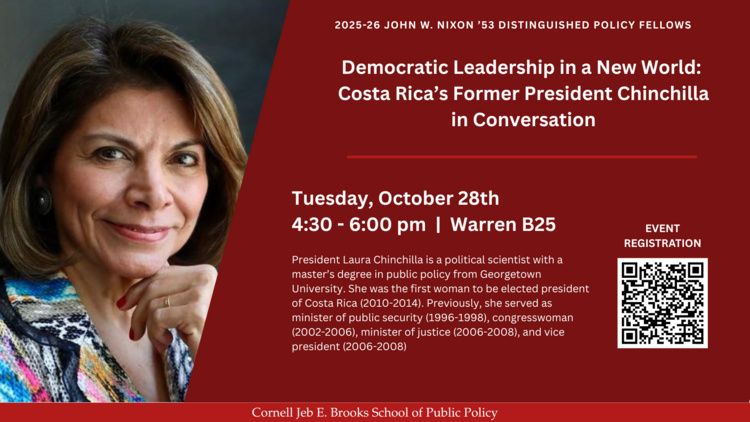
October 28, 2025
4:30 pm
Warren Hall, B25
You are warmly invited to join us for a special event with President Laura Chinchilla, 2025-2026 John W. Nixon ’53 Distinguished Policy Fellow, in conversation with Professor Rachel Riedl, Peggy J. Koenig ’78 Director of the Center on Global Democracy, and Zarifa Ghafari, Human Rights Activist, former Afghan mayor, and Cornell MPA ’26.
Event registration: Please scan the QR code on the attached flyer or register via this link.
We hope you will join us for this timely and engaging conversation.
Additional Information
Program
Einaudi Center for International Studies
Latin American and Caribbean Studies
